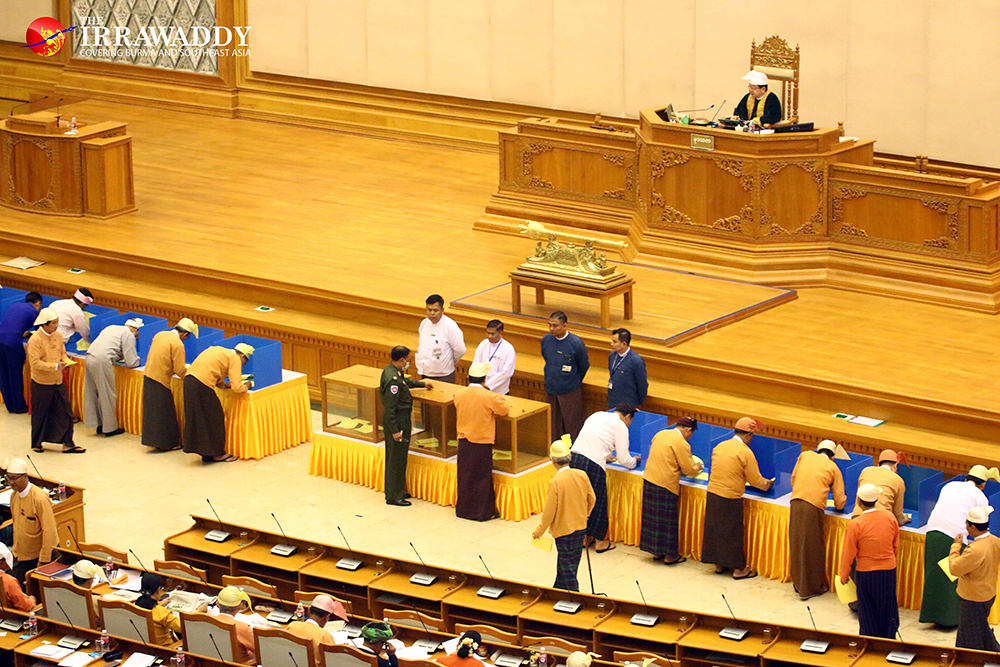YANGON—The National League for Democracy (NLD), which has seen almost all of its proposed constitutional amendments blocked by the military and its ally, the Union Solidarity and Development Party (USDP), on Tuesday joined with ethnic lawmakers to vote down the military’s attempts to expand its powers under the charter.
On Tuesday, the Union Parliament voted down the military and USDP lawmakers’ joint proposal to have state and regional chief ministers elected by their local legislatures rather than appointed by the Union president. Only 239 of 654 lawmakers, or less than 37 percent, voted in favor of the proposal—far below the required level of more than 75 percent.
The USDP and the military claimed that the proposal would promote ethnic rights, but many ethnic politicians and the NLD raised concerns that it would give even more power to the military, which is already guaranteed one third of seats in state and regional legislatures under the Constitution.
The NLD lawmakers pointed out that if the article was amended, the military, which currently does not have any say in appointing chief ministers, would have that right. In some military stronghold regions, it would even give the military and the USDP a chance to install their own chief ministers, as with about 33.3 percent of seats reserved for the military, the USDP and the military’s other allied parties would only need to win just over 17 percent of seats between them to secure a parliamentary majority for the bloc of military lawmakers and their allies.
Looking at the results of Tuesday’s balloting, the USDP and the military only received support from a few ethnic lawmakers.
Another proposal submitted by the military-appointed lawmakers to bar anyone who has a foreign citizen in their immediate family from becoming a Union minister or chief minister—an expansion of Article 59(f)’s restriction imposed on the presidency— was also rejected.

The proposal was widely viewed as an attempt to bar State Counselor Daw Aung San Suu Kyi from becoming a Union minister if her government wins another term. She holds three posts in the current government: State Counselor, President’s Office minister and foreign affairs minister.
It would also affect some other current ministers and chief ministers whose children are married to foreign citizens.
That proposal received only 224 votes in favor—less than 35 percent of lawmakers.
Under the Constitution, any constitutional amendment requires the support of more than 75 percent of lawmakers—or at least 491—while 25 percent of lawmakers are appointed by the military.
Currently, the NLD holds 59 percent of seats in Parliament, ethnic parties hold 11 percent, the USDP holds 5 percent, and the military holds a constitutionally mandated 25 percent.
You may also like these stories
Mon State MPs Urge Govt: Ban Pilgrimages to Myanmar’s Golden Rock Over COVID-19
Nine Civilians Injured in Rakhine as Myanmar Military Shells Villages
RCSS Dialogue with Shan Residents Postponed Over Myanmar’s Coronavirus Concerns

















